Shows

Dog Talk ® (and Kitties Too!)Wolves and German Shepherd Dogs#971B: Greger Larson, the Director of the Paleogenomics & Bio-Archaeology Research Network at the School of Archaeology at Oxford University, returns to discuss whether wolves were ever introduced into the breeding of German Shepherd Dogs — which was adamantly opposed by early breeders around WW II in Germany. They were purists against hybridization with wolves — although it would have been to the dogs’ health advantage.
2026-01-2630 min
Dog Talk ® (and Kitties Too!)Cat Mummies for Sale in Ancient Egypt#969A: Greger Larson, Director of the Palaeogenomics & Bio-Archaeology Research Network of the School of Archaeology at Oxford University, tells the amazing true history of how cats found their way into human society in Egypt, where travelers making a pilgrimage to the tombs needed to present a mummified cat as an offering — so local entrepreneurs bred them on an island in the Nile in order to mummify them and sell them to the pilgrims.
2026-01-1229 min
What The Duck?!Dogs in Australia: What is a dingo?This is the story of the domesticated animal that feralised itself.Where did dingoes come from and when?Where does a wild dog stop and a dingo begin?How much can genetics really tell us about Australia's only native dog — and how long do you have to live somewhere to be 'native'?Featuring:Professor Clive Wynne, animal psychologist, Arizona State UniversityDr Angela Perri, zooarchaeologist, Chronicle HeritageKelly Ann Blake, Wadawurrung woman, and Jack the DingoProfessor Greger Larson, evolutionary genomics at the University of OxfordProfessor Euan Ritchie, Professor of Wildlife Ecology and Co...
2026-01-0925 min
What The Duck?!Designer dogs: What is a breed anyway?There's designer clothes, but they have nothing on designer dogs!They come in a huge range of shapes and colours and sizes, from the tiny Chihuahua to the Great Dane.In the animal world this much variation usually means different species, but not for dogs — so where did they all come from?And what role did Victorian-era rats play in the development of 'breed standards'?Featuring:Joyce Sullivan, papillon breederWayne Douglas OAM, Afghan Hound breederEsther Joseph, all breeds judgeMichael Worboys emeritus professor the University of ManchesterProfessor Greger Larson, evolutionary genomics at...
2025-12-1925 min
What The Duck?!Wolf to woof: Did we make dogs?The relationship between humans and big scary wolves has come a long way to give us tiny fluffy lap dogs with very discerning tastes in expensive food.Whose idea was it? Was it the wolves who wanted the warmth of the fire, or the humans who wanted protection from the other scary carnivores?And take a look at the first archaeological evidence of a beloved family pet preserved with its human family for almost 15,000 years!Featuring:Luc Janssens, Specialist in small animal surgery and archaeologistProfessor Greger Larson, evolutionary genomics at the University...
2025-12-1225 min
PNAS Science SessionsGenetic history of dog domesticationGenetic history of dog domestication Science Sessions are brief conversations with cutting-edge researchers, National Academy members, and policymakers as they discuss topics relevant to today's scientific community. Learn the behind-the-scenes story of work published in the Proceedings of the National Academy of Sciences (PNAS), plus a broad range of scientific news about discoveries that affect the world around us. In this episode, researchers explore the impact of domestication on dog genetics and behavior. In this episode, we cover: •[00:00] Introduction •[01:00] Greger Larson explains how the history of gene flow between dogs and their wild rela...
2025-12-0815 min
Freakonomics RadioIs the World Ready for a Guaranteed Basic Income? (Update)A lot of jobs in the modern economy don’t pay a living wage, and some of those jobs may be wiped out by new technologies. So what’s to be done? We revisit an episode from 2016 for a potential solution. SOURCES:Erik Brynjolfsson, professor of economics at Stanford University.Evelyn Forget, professor of economics and community health sciences at the University of Manitoba.Sam Altman, C.E.O. of OpenAI.Robert Gordon, professor emeritus of economics at Northwestern University.Greger Larson, professor of archeology at the University of Oxford. RESOURCES:"Here's what a Sam Al...
2025-09-1736 min
What The Duck?!Dogs in Australia: What is a dingo?This is the story of the domesticated animal that feralised itself.Where did dingoes come from and when?Where does a wild dog stop and a dingo begin?How much can genetics really tell us about Australia's only native dog — and how long do you have to live somewhere to be 'native'?Featuring:Professor Clive Wynne, animal psychologist, Arizona State UniversityDr Angela Perri, zooarchaeologist, Chronicle HeritageKelly Ann Blake, Wadawurrung woman, and Jack the DingoProfessor Greger Larson, evolutionary genomics at the University of OxfordProfessor Euan Ritchie, Professor of Wildlife Ecology and Co...
2025-06-1325 min
What The Duck?!Designer dogs: What is a breed anyway?There's designer clothes, but they have nothing on designer dogs!They come in a huge range of shapes and colours and sizes, from the tiny Chihuahua to the Great Dane.In the animal world this much variation usually means different species, but not for dogs — so where did they all come from?And what role did Victorian-era rats play in the development of 'breed standards'?Featuring:Joyce Sullivan, papillon breederWayne Douglas OAM, Afghan Hound breederEsther Joseph, all breeds judgeMichael Worboys emeritus professor the University of ManchesterProfessor Greger Larson, evolutionary genomics at...
2025-05-2325 min
What The Duck?!Wolf to woof: Did we make dogs?The relationship between humans and big scary wolves has come a long way to give us tiny fluffy lap dogs with very discerning tastes in expensive food.Whose idea was it? Was it the wolves who wanted the warmth of the fire, or the humans who wanted protection from the other scary carnivores? And take a look at the first archaeological evidence of a beloved family pet preserved with its human family for almost 15,000 years!Featuring:Luc Janssens, Specialist in small animal surgery and archaeologistProfessor Greger Larson, evolutionary genomics at the University o...
2025-05-1625 min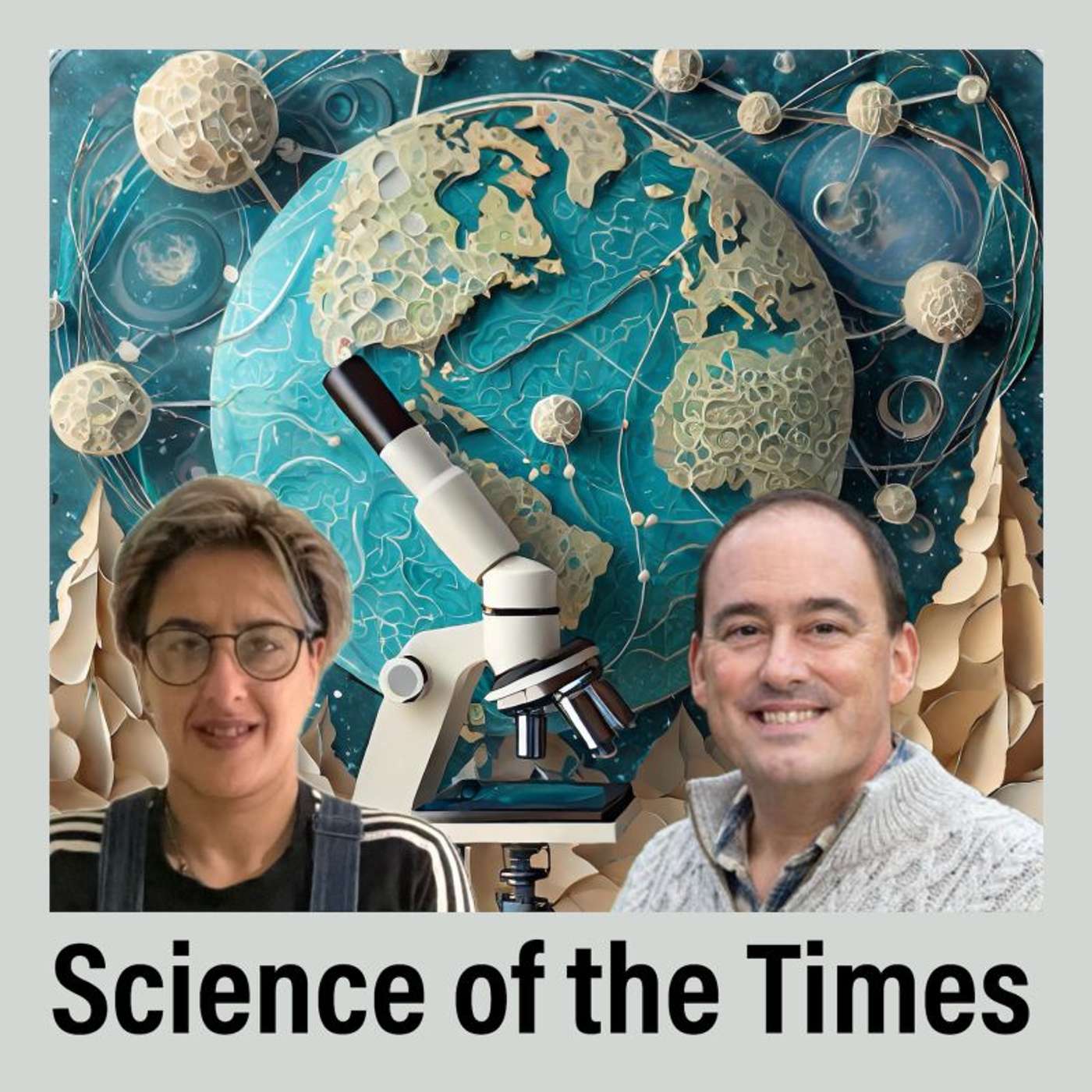
Science Of The TimesHow did dogs become our best friend?Dogs are people’s best friend, but how did that happen? Did we tame them or did they train us, or is it a bit of both? Join us as we discuss domestication with Greger Larson and Lachlan Scarsbrook
2025-04-0239 min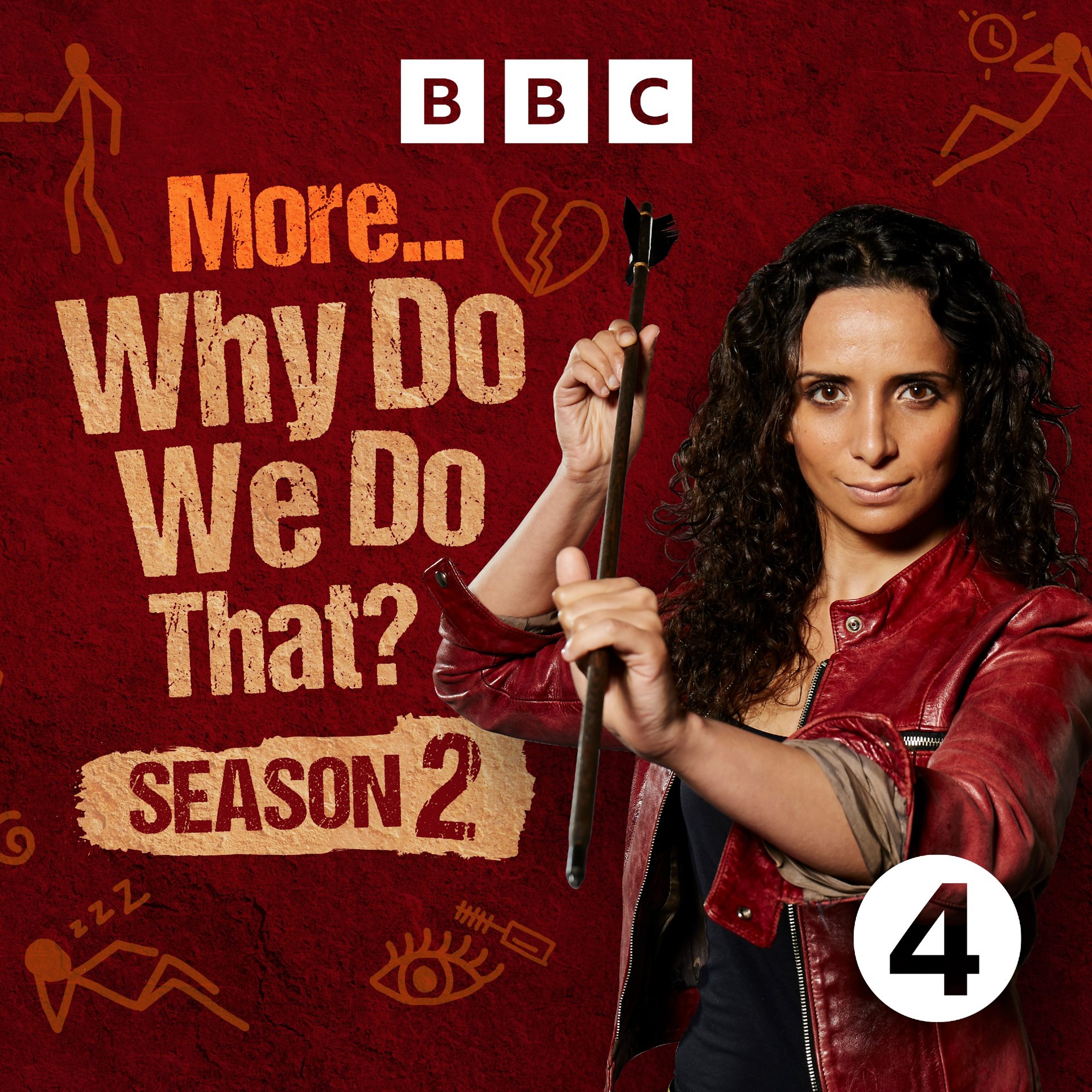
Why Do We Do That?More... Dogs with Greger LarsonBONUS: Ella Al-Shamahi explores evolutionary mysteries in More Dogs with Greger Larson.BBC Studios Audio
Producer: Olivia Jani
Additional Production: Emily Bird
Series Producer: Geraldine Fitzgerald
Executive Producer: Alexandra Feachem
2025-02-2119 min
What About...What About... Artificial Selection w/Greger LarsonDanny and Jason put their best traits forward in a conversation with evolutionary geneticist Greger Larson on the topic of ARTIFICIAL SELECTION.
2025-02-1345 min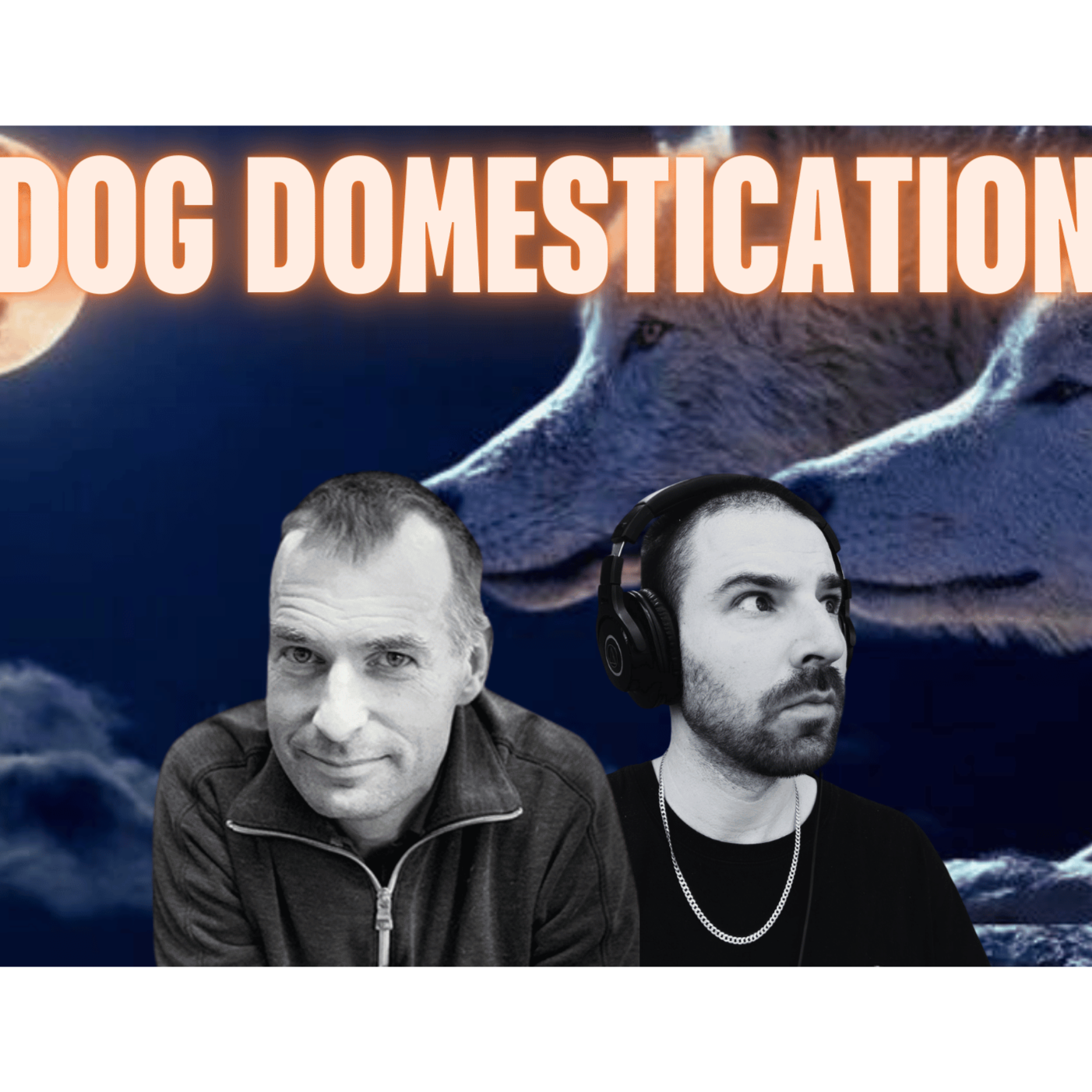
Smart CookiesDid we domesticate DOGS or did dogs domesticate us? With prof. Greger LarsonThe story of dog domestication seems as simple as pie - humans took some wolf puppies, brought them over to the campfire and the rest is history... However, the truth is far less straightforward and far murkier, sometimes even downright bizarre.From rabbits and chickens, to dogs and cats, prof. Greger Larson, an evolutionary geneticist from University of Oxford breaks down the extremely complicated story of humans and the process of animal domestication.
2024-07-251h 03
Ill-Equipped History40: The Domestication of AnimalsWe're diving into paleo-genomics today with this episode, where Morgan and Emileigh dive into how animals became domesticated. Learn how man's best friend came to be, and the unique way cats entered our lives!
Follow us on Instagram!
https://www.instagram.com/illequippedhistory/
Join our Facebook group!
https://www.facebook.com/groups/illequippedhistory
Email us!
illequippedhistory@gmail.com
Check us out on TikTok!
https://www.tiktok.com/@illequipped.histo
Donate to our Patreon!
https://www.patreon.com/ill...
2024-01-251h 14
Ill-Equipped History40: The Domestication of AnimalsWe're diving into paleo-genomics today with this episode, where Morgan and Emileigh dive into how animals became domesticated. Learn how man's best friend came to be, and the unique way cats entered our lives!
Follow us on Instagram!
https://www.instagram.com/illequippedhistory/
Join our Facebook group!
https://www.facebook.com/groups/illequippedhistory
Email us!
illequippedhistory@gmail.com
Check us out on TikTok!
https://www.tiktok.com/@illequipped.histo
Donate to our Patreon!
https://www.patreon.com/ill...
2024-01-251h 14
падзівіся!чаму «мі-мі-мі»? - выпуск пра немаўлят, жывёл, прылеглае ядро ды чаму мілае нам падаецца мілымА вам ніколі не падавалася дзіўным тое, як людзі паводзяць сябе побач з немаўлятамі? Ды й яшчэ й побач з котачкамі, сабачкамі, ды й іншымі? Не заўсёды канешне, але я менавіта пра той выпадак, калі хтосьці нечакана пачынае усьміхацца, спрабаваць падхапіць, абняць, зазірнуць у вочы, а потым яшчэ абавязкова чуецца … «Оооооо, як гэта міла!». Не тое што б я сама ў такія моманты неяк па-іншаму дзейнічаю, але ж… гэта ж дзіўна, чаму так? Тым больш штосьці міленькае, маленькае, мяккае, з вялікімі вочкамі, маленькімі ножкамі не пакідае безымацыйным нікога, не залежна ад культуры, Радзімы, мовы, сьветапогляду. Як увогуле атрымалася так, што нам сапраўды цікава і прыемна глядзець відэа з мілымі шчанямі і кацянямі?
Здаецца, што здольнасьць да расчуленьня - гэта нейкая ўсеагульная асаблівасьць, уласьцівая кожнаму прадстаўніку Homo Sapiens.
Па якім прынцыпам мы дапасоўваем штосьці ці кагосьці да групы «мілага»? Што адбываецца ў нашым целе, перад тым, як мы скажам «Оооо, як міла»? Ды чаму ўвогуле гэтае пачуцьцё ўзьнікае?
Гэты выпуск прысьвечаны тэме мілаты. І, спадзяюся, там вы зможаце знайсьці адказы на некаторыя вашыя пытаньні. Таму націскайце на кнопку «плэй» і слухайце з задавальненьнем!!
п. с.:
чым я карысталася падчас стварэньня гэтага выпуска:
артыкулы:
- How cute things hijack our brains and drive behaviour - University of Oxford
https://www.ox.ac.uk/research/how-cute-things-hijack-our-brains-and-drive-behaviour
- The science of cute - New Atlas
The science of cute
- On cuteness: unlocking the parental brain beyond - PubMed Central, M. L. Kringelbach, E. A. Stark, C. Alexander, M. H. Bornstein, A. Stein
On cuteness: unlocking the parental brain and beyond - PMC
- The History of Farm Foxes Undermines the Animal Domestication Syndrome - Kathryn A. Lord, Greger Larson, Raymond P. Coppinger, Elinor K. Karlsson
The History of Farm Foxes Undermines the Animal Domestication Syndrome: Trends in Ecology & Evolution
відэа:
- лекцыя Роберта Сапольскі на тэму эталёгіі
https://youtu.be/ISVaoLlW104?si=6rxrXnv3VTArIAX1
- відэа TED, сьпікер - Дэн Дэннет
Dan Dennet: Cute, sexy, sweet, funny
https://youtu.be/TzN-uIVkfjg?si=MGVd5YqtyAKq_BfU
- відэа TED-Education - Why do we want to squeeze cute things?
https://youtu.be/yxsoE3jO8HM?si=8oLcHNNx_dDvQZQp
- Why are the things cute? - Vsauce
https://youtu.be/Z0zConOPZ8Y?si=yA1stCBg6aUkSPb6
п. п. с.: я вельмі шаную вашую зваротную сувязь! Таму калі ў Вас ёсьць нейкія прпановы, заўвагі, ці проста настрой напісаць мне водгук пасьля праслухоўваньня - абавязкова гэта рабіце! А яшчэ пераходзьце па спасылачцы https://t.me/padzivisja ў тэлеграм-канал падкаста, там у каментарах да пастоў можна дзяліцца сваімі думкамі)
пачуемся!!
2023-09-1112 min
The Dissenter#828 Greger Larson: Animal Domestication and Human Evolution------------------Support the channel------------
Patreon: https://www.patreon.com/thedissenter
PayPal: paypal.me/thedissenter
PayPal Subscription 1 Dollar: https://tinyurl.com/yb3acuuy
PayPal Subscription 3 Dollars: https://tinyurl.com/ybn6bg9l
PayPal Subscription 5 Dollars: https://tinyurl.com/ycmr9gpz
PayPal Subscription 10 Dollars: https://tinyurl.com/y9r3fc9m
PayPal Subscription 20 Dollars: https://tinyurl.com/y95uvkao
------------------Follow me on---------------------
Facebook: https://www.facebook.com/thedissenteryt/
Twitter: https://twitter.com/TheDissenterYT
This show is sp...
2023-08-311h 01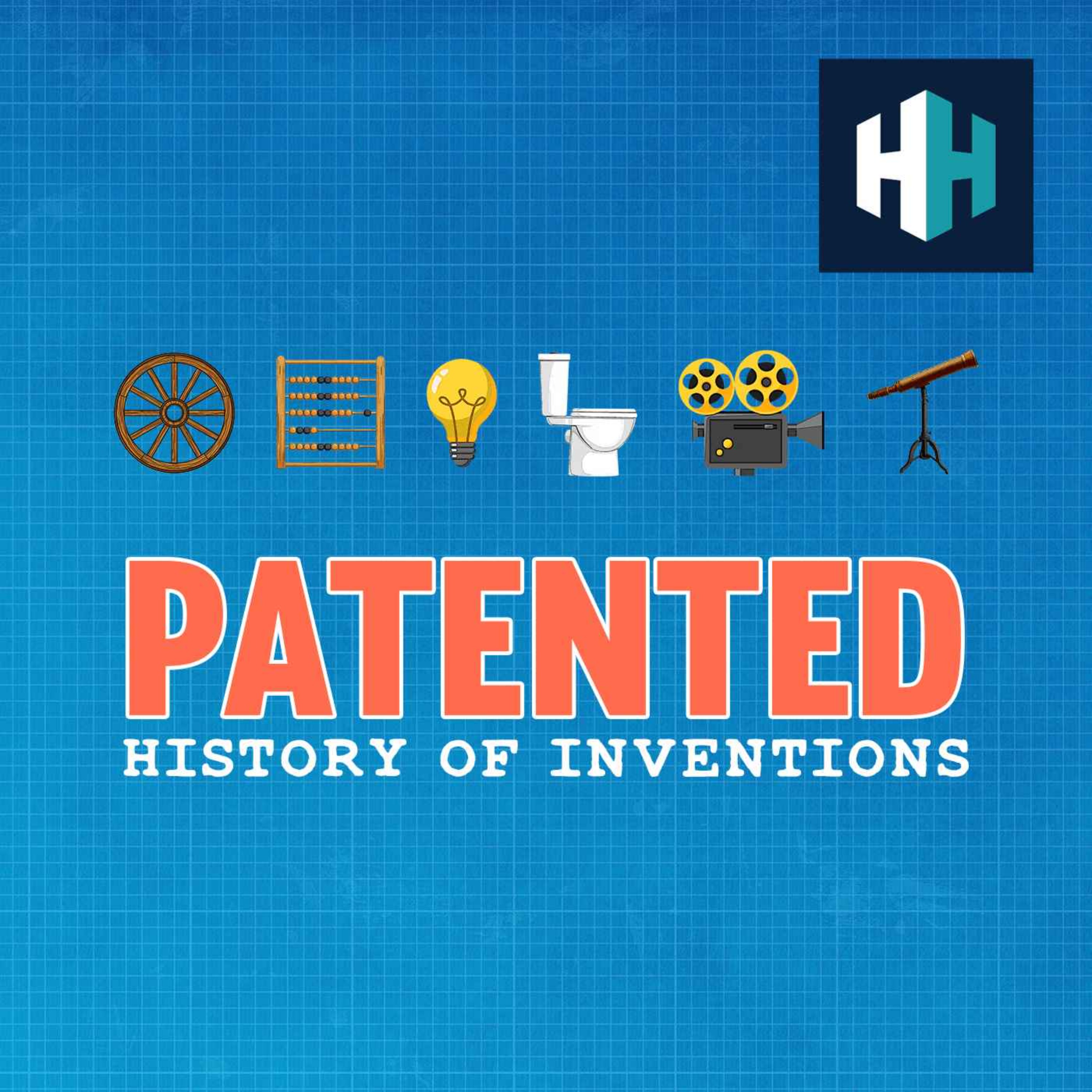
Patented: History of InventionsDogs: Domesticating Wolves, Inventing Breeds (& Killer Beavers)How do we go from wolves to modern dogs? And where do Killer Beavers fit into the story?Humans domesticated wolves long before any other animal (or even any plants). Yet what exactly happened is shrouded in mystery.We cover ancient origins, the explosion of breeds in the Victorian era, and some very strange experiments in Soviet Russia.Dallas’s guest today is Greger Larson, an evolutionary geneticist at Oxford University.Discover the past on History Hit with ad-free original podcasts and documentaries released weekly presented by wo...
2023-07-0239 min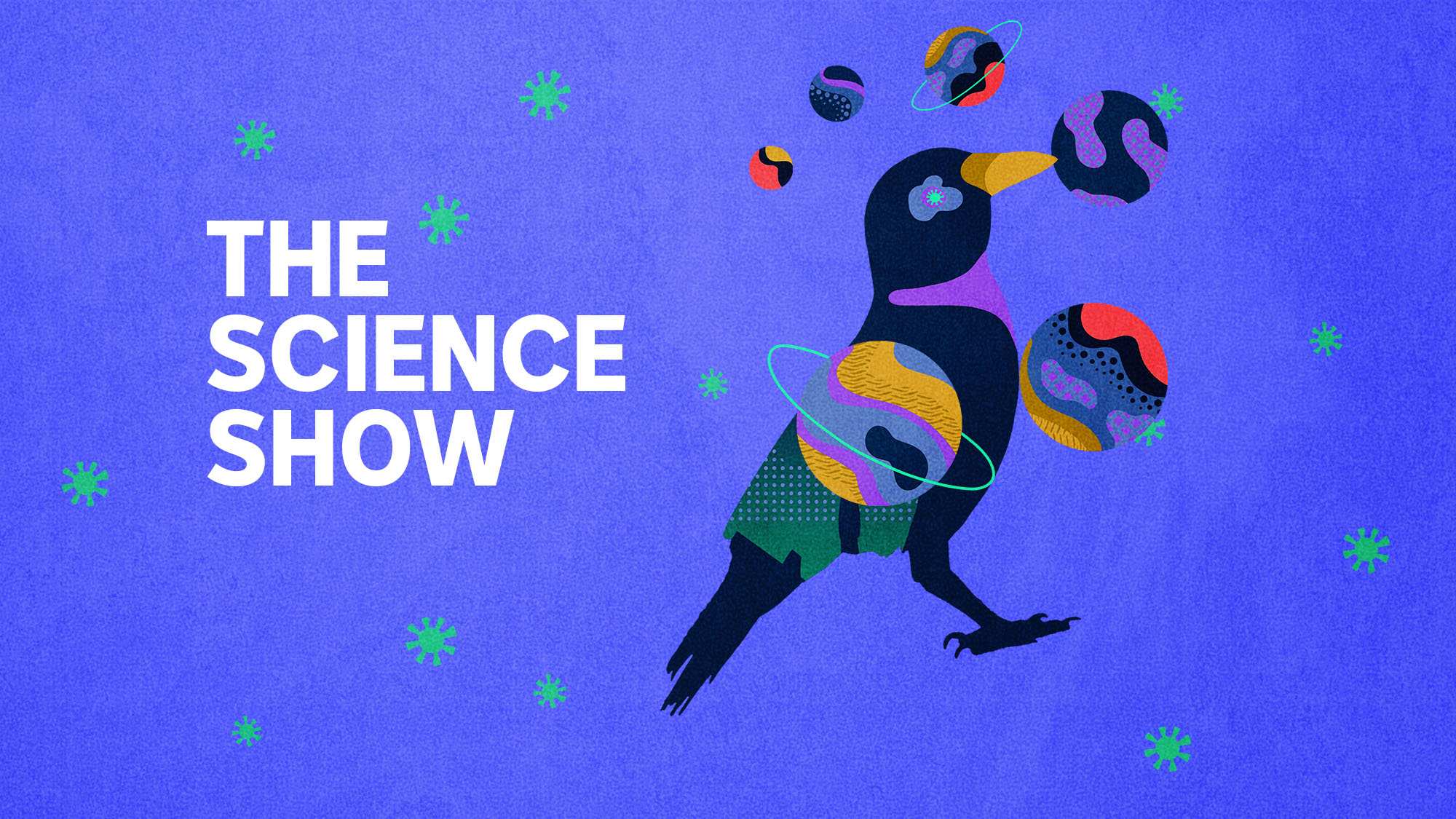
The Science Show - Full Program PodcastHow crows use deception, saving freshwater turtles and the history of horsesAround 4,200 years ago, horses began accepting humans. Greger Larson describes the change in a species which changed the course of human history.
2022-11-0500 min
The Science Show - Full Program PodcastHow crows use deception, saving freshwater turtles and the history of horsesAround 4,200 years ago, horses began accepting humans. Greger Larson describes the change in a species which changed the course of human history.
2022-11-0500 min
The Science ShowHow crows use deception, saving freshwater turtles and the history of horsesAround 4,200 years ago, horses began accepting humans. Greger Larson describes the change in a species which changed the course of human history.
2022-11-0500 min
Curiosity WeeklyHealing Hearing Hairs, Sun Phones, Chicken GodsHear about a new treatment that may be able to reverse hearing loss, how new solar energy storage technology could eventually power our phones, and the surprisingly grand history of chickens.Reversing hearing loss. “Reversing hearing loss with regenerative therapy” by Zach Winnhttps://news.mit.edu/2022/frequency-therapeutics-hearing-regeneration-0329“What are Progenitor Cells? Exploring Neural, Myeloid and Hematopoietic Progenitor Cells” by Nicole Gleichmannhttps://www.technologynetworks.com/cell-science/articles/what-are-progenitor-cells-exploring-neural-myeloid-and-hematopoietic-progenitor-cells-329519“Quick Statistics About Hearing” by the National Institute on Deafness and Other Communication Disordershttps://www.nidcd.nih.gov/health/statistics/quick-statistics-hearing“PCA Approach” and “About Hearing Loss” by Frequency Therapeuticshttps://w...
2022-08-0412 min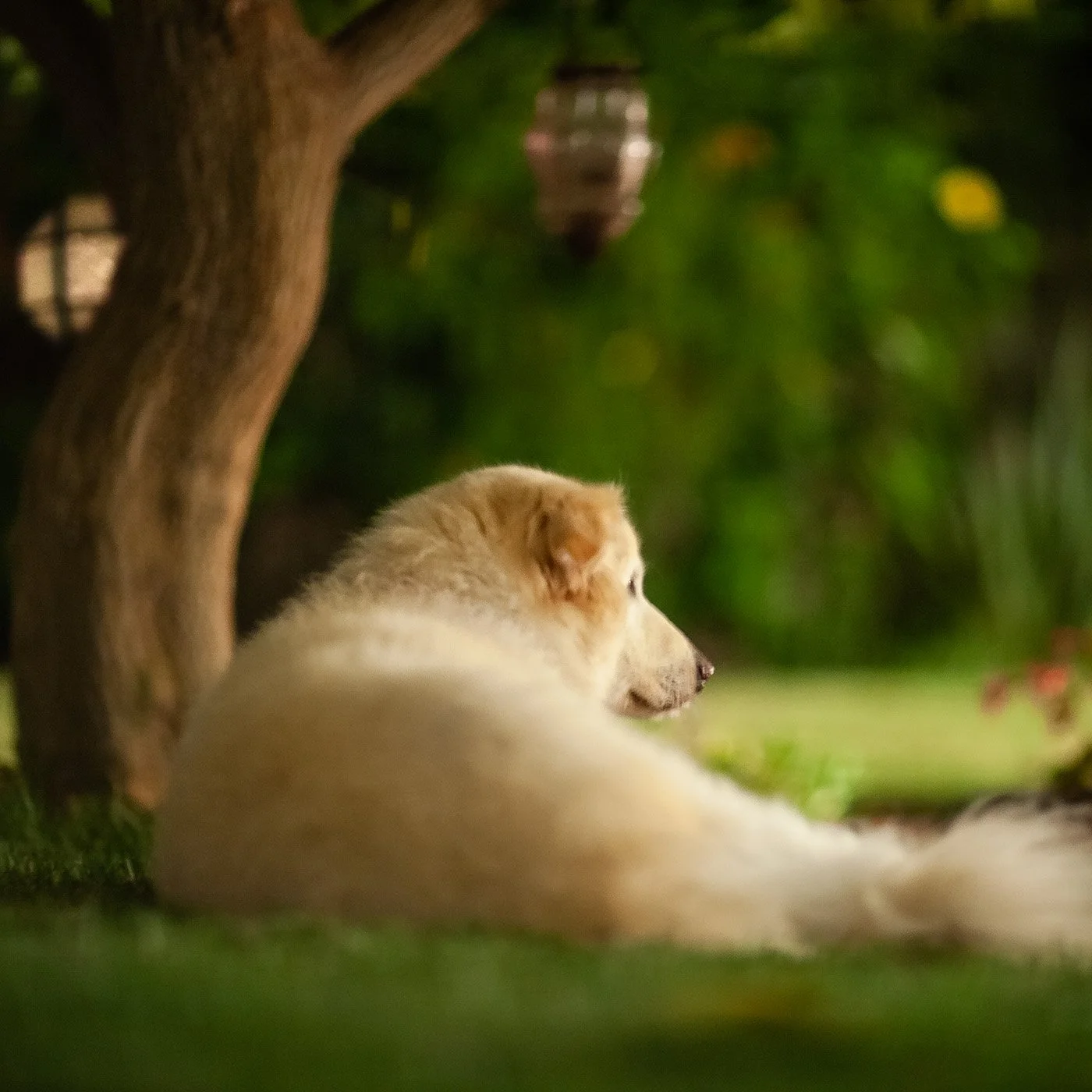
DogstorianS1E03: Domestication with Greger Larson and pet foxes with Kristina WieghminkThe third episode dives into the topic of domestication of dogs with professor Greger Larson. We talk about the path that the grey wolf had to take to become the modern dog, how domestication in general affects people's lives and what we can and cannot learn from genes. https://www.arch.ox.ac.uk/people/larson-greger. Funny enough, domestication of dogs leads us to another animal - foxes - about which we chat with Kristina Wieghmink. Kristina and her husband share their lives not only with four dogs but two foxes. Gaia and Inali have brought a lot of change...
2022-07-251h 00
Unexpected ElementsBody scan reveals HIV's hideoutsResearchers have developed a medical imaging technique which reveals where in the body HIV lies hidden, even when people have their infection well controlled by antiviral drugs. The team at the University of California, San Francisco hope this will lead to better treatments and even cures for HIV. As Timothy Henrich told us, they are also going to use the technique to investigate the notion that Long Covid is caused by the coronavirus persisting deep in the body's tissues.Also in the programme, Roland Pease reports from the vast particle accelerator in Switzerland where the famous Higgs...
2022-06-121h 00
Science In ActionBody scan reveals HIV's hideoutsResearchers have developed a medical imaging technique which reveals where in the body HIV lies hidden, even when people have their infection well controlled by antiviral drugs. The team at the University of California, San Francisco hope this will lead to better treatments and even cures for HIV. As Timothy Henrich told us, they are also going to use the technique to investigate the notion that Long Covid is caused by the coronavirus persisting deep in the body's tissues.Also in the programme, Roland Pease reports from the vast particle accelerator in Switzerland where the famous Higgs...
2022-06-0929 min
The Futures ArchiveS1E12: The PetDo you have a pet? Do you name inanimate objects in your life? On this episode of The Futures Archive Lee Moreau and guest host Liz Danzico discuss her dog Harriet, and the anthropomorphization of things. With additional insights from Greger Larson, Gail Melson, and Hannah Chung.
2022-01-0637 min
BackAlley AlchemistMoon CrazySupport here or on Patreon at: Patreon.com/BackAlleyAlchemist
Sources:
www.livescience.com?oldest-rock-art-supernatural-beings.html
www.iflscience.com/editors-blog/weirdos-werewolves-and-full-moon/
Irving-Pease, Evan K.;Ruan, Hannah; Jamieson, Alexandra; Dimopoulos, Evangelos A.; Larson, Greger; Frantz, Laurent A. F. (2018). "Paleogenomics of Animal Domestication". In Lindvqvcist, C.; Rajora, O. (eds.). Paleogenomics. Springer, Cham. pp. 225-272. doi10.1007/13836_2018_55. ISBN 978-3-030-04752-8.
https.//www.nationalarchives.gov.uk/education/resources/early-modern-witch-trials/
www.cambridge.org/core/services/aop-cambridge/content/view/S0883769400041701
---
Support this podcast: https://podcasters.spotify.com/pod...
2021-10-231h 07
Origin StoriesEntre Chien et Loup: How Dogs BeganScientists agree that dogs evolved from wolves, but exactly how and when that happened is hotly contested. In this episode, Origin Stories contributor Neil Sandell examines the evolution of the relationship between dogs and humans, and explores the journey from wolf to dog. This story was originally produced for the CBC program IDEAS. Click here for a transcript of this episode. Guests in this episode: (in order of appearance) Angela Perri is an archaeologist at Durham University, U.K. Sebastian Dicenaire is a French playwright and audio producer living...
2021-10-0554 min
The Bearded Tit‘s PodcastFrom Wolves to Dacshunds ft Greger Larson #66In todays show we’ll be looking at how wolves got domesticated, if dogs and wolves are the same species and how dogs have changed are own evolution.
One thing I wanted to find out was how we got from the might wolf to a walking sausage so I got in touch with Greger Larson. He studied at Oxford and the University of Colorado before receiving his PhD in Zoology in 2006. He is now the Director of the Palaeogenomics & Bio-Archaeology Research Network Greger where he is continuing his focus on the use of ancient DNA to study the...
2021-04-2736 min
A Bit LitBox Office Bears #1: a new research project on animal-baitingBox Office Bears: Animal-Baiting in Early Modern England is a new Arts and Humanities Research Council-funded project that begins today. In our first film for the project, its lead researchers - Hannah O'Regan, Greger Larson and Andy Kesson - have a preli Hosted on Acast. See acast.com/privacy for more information.
2021-03-2641 min
The Sara Ondrako ShowAncient DNA & Domestication - Dr. Greger LarsonDr. Greger Larson is the Director of the Palaeogenomics & Bio-Archaeology Research Network at the University of Oxford in the UK. His focus is on the use of ancient DNA to study the pattern and process of domestication. He received his bachelor's degree in 1996 from Claremont McKenna College, a small liberal arts college in California. He then studied at Oxford and the University of Colorado before receiving his Ph.D. in Zoology in 2006.Palaeo Barn: www.palaeobarn.com Hosted on Acast. See acast.com/privacy for more information.
2021-03-2254 min
Oxford Sparks Big QuestionsWhen did dogs become our best friends?In this year's Valentine's episode, we're exploring one of the most special relationships around. That's right - the one between us and our dogs! We often hear pooches described as "(wo)man's best friend", but for how long has this been the case? Join Prof Greger Larson, an expert in palaeogenomics and bio-archaeology, as we journey back thousands of years to explore the possible origins of this remarkable inter-species bond.
2021-02-1710 min
The Milk of AudhumlaThe Domestication and Dispersal of Dogs: Ethnocynology, DNA, Skulls, and Domestic Fox.When the Man waked up he said, “What is Wild Dog doing here?” And the Woman said, “His name is not Wild Dog any more, but the First Friend, because he will be our friend for always and always and always.” Rudyard Kipling
Dog research has blossomed in recent years. New findings concerning dog cognition, sociability, and domestication have expanded our understandings of “man's best friend”. Today share with you a recent article which helps to pin down the origins and initial dispersal of domestic dogs into North America.
Reference: “Dog domestication and the dual dispersal of p...
2021-02-1520 min
HumanistesNotre rapport au reste du règne animalOh qu'on dérape looooooooin du sujet principal de l'épisode, mais honnêtement, la discussion est intéressante. C'est probablement un de mes préférés jusqu'à maintenant.
On parle de spécisme, d'animaux, d'humains, de spiritualité, de biologie et de plein d'autres choses. Dites-nous ce que vous en pensez.
Aussi, on a finalement une page Facebook! Allez voir ça, et si vous nous aimez, suivez la page. Ça nous encourage et ça fait du bien à mon petit cœur. Prochain épisode : la religion. Caline de bine qu'on aime la controverse.
...
2021-02-121h 23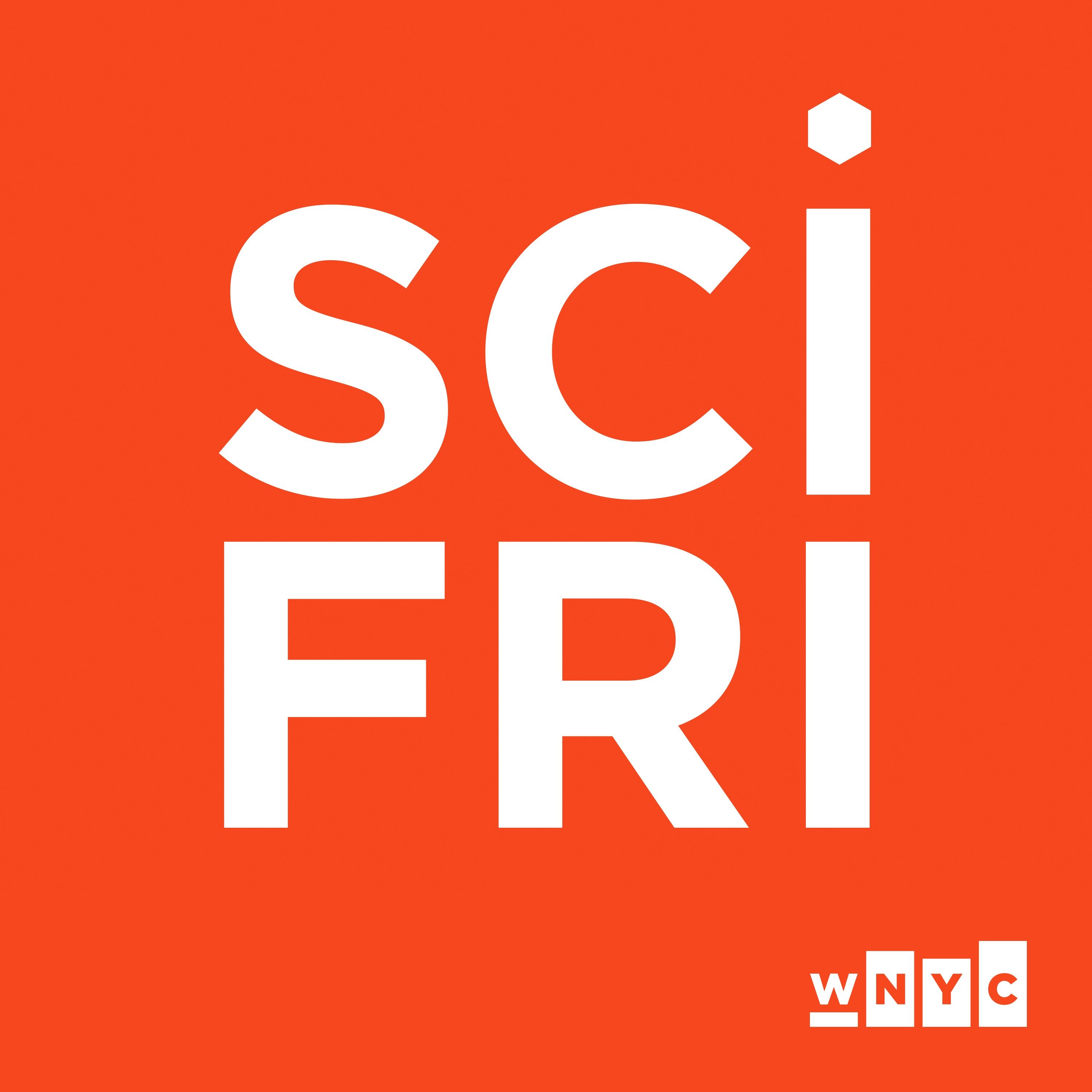
Science Friday2020 In Review, Charismatic Tubeworms, Dog Evolution. Dec 25, 2020, Part 12020: The Year In Science, With Wendy Zukerman
It’s the end of the year, and time to reflect. While there’s no doubt the coronavirus and efforts to combat it led the science pages this year, there was more to this year than masks and hand sanitizer.
Wendy Zukerman, host and executive producer of the Gimlet podcast Science Vs, joins Ira to talk about this very strange year, and recap some of the best science—from the rise of COVID-19, to climate change and wildfires, to the discovery of fluorescent platypuses.
Plus, check out som...
2020-12-2548 minThe Pet Buzzweek of Nov 22 - National Dog Show Winner, Migration and Domestication of Dogs, Cold Weather TipsThis week on The Pet Buzz, Petrendologist Charlotte Reed and Michael Fleck, DVM, talk with Professional Handler Angela Lloyd about the winner of the National Dog Show and with Greger Larson, Director, Palaeogenomics & Bio-Archaeology Research Network School of Archaeology at Oxford University about the migration and domestication of dogs. Reed and Fleck talk cold weather tips.
2020-11-2743 min
Talkin' DogDog Domestication with special guest Dr. Greger LarsonJoin us for an informative hour learning about the domestication of the first animal the dog.
Our guest Dr. Greger Larson is a professor of archeology at the University of Oxford in England. His research and use of DNA technology has led to many discoveries unlocking the mysteries of how, when and where the dog became mans best friend.
to listen to previous show go here www.talkindog.co,/podcast
Email: show@talkindog.com
#talkindog #dog #gregerlarson #dogdomestication #wolf #wolves #dogpodcasts
2020-10-0557 min
Tides of HistoryHow Did People Domesticate Animals? An Interview with Professor Greger LarsonThe domestication of animals has transformed the way that people eat, clothe themselves, and live over the past 10,000 or so years, but what in the world does "domestication" even mean? How did this happen, and why did people start doing this? I talk with Professor Greger Larson of Oxford University about the genetics of animal domestication and how cutting-edge science is helping us answer these age-old questions.Support us by supporting our sponsors!See Privacy Policy at https://art19.com/privacy and California Privacy Notice at https://art19.com/privacy#do-not-sell-my-info.
2020-09-1758 min
Thought Huddle podcastAll About DogsDog owners are wild about their dogs. It's hard to overstate the power and poignancy of this human-canine bond. But what makes dogs so special--and where do they come from? These are just two of the topics explored by Greger Larson, University of Oxford evolutionary biologist; Linda Milanesi, executive director of Assistance Dogs of the West; and Clive Wynne, ASU professor of psychology and author of the forthcoming book, "Dog is Love."
2019-05-0142 min
Thought Huddle podcastAll About DogsDog owners are wild about their dogs. It's hard to overstate the power and poignancy of this human-canine bond. But what makes dogs so special--and where do they come from? These are just two of the topics explored by Greger Larson, University of Oxford evolutionary biologist; Linda Milanesi, executive director of Assistance Dogs of the West; and Clive Wynne, ASU professor of psychology and author of the forthcoming book, "Dog is Love."
2019-05-0100 min
Talking Biotech with Dr. Kevin FoltaChicken DomesticationThe chicken is by far the most abundant animal farmed on earth, grown for meat and eggs. But where did it come from? What kinds of birds were domesticated? When? Where? What were the traits that came from wild jungle fowl that give us today’s familiar bird? These questions and more are answered by Dr. Greger Larson from Oxford University. Dr. Larson combines data from genomics, archaeology, and anthropology to reconstruct the ancient history of various animals, illuminating how they became part of agriculture. This episode of explores the fascinating history of domestic chickens.Follow Prof Larson: ...
2018-08-1838 min
Cell PodcastMarch 2018: On the Steps of the Walking Fish<p>In this edition, we'll hear about new methods to monitor cannabis use, with Marilyn Heustis, <em><a href="http://www.cell.com/trends/molecular-medicine/fulltext/S1471-4914(17)30229-0" target="_blank">Trends in Molecular Medicine</a></em> (00:00); old tales of rabbit’s domestication, with Greger Larson, <em><a href="http://www.cell.com/trends/ecology-evolution/fulltext/S0169-5347(18)30001-6" target="_blank">Trends in Ecology & Evolution</a></em> (12:19); "walking fish" and the neural or...
2018-03-2900 min
Talking Biotech with Dr. Kevin FoltaDNA Evidence and Dog DomesticationExperts agree that dogs have evolved from the gray wolf, but after that there are many questions and debates about how and why they became our prized companions. Prof. Greger Larson applies the lessons of evolution, archaeology and genomics to describe the canine lineage and describe this progression. There are many inferences and surprises along the way, and DNA from dog fossils is shedding light on this interesting question. Follow Prof. Larson at @Greger_Larson or www.palaeobarn.comAlso, Chelsea Boonstra and The Boonstra Report. # COLABRATalking Biotech is brought to you by C...
2016-12-1736 min
The ForumDNA: The code for making lifeBridget Kendall and guests explore the current understanding of how DNA works, why it needs constant repair in every living organism and how new DNA-altering techniques can help cure some medical conditions. Joining Bridget are Swedish Nobel Laureate and Francis Crick Institute Emeritus Group Leader Tomas Lindahl who pioneered DNA repair studies, medical researcher Niels Geijsen from the Hubrecht Institute who works on curing diseases caused by faulty inherited genes, evolutionary biologist T Ryan Gregory from Guelph University who asks why an onion has 5 times as much DNA as a human, and Oxford University’s bio-archaeologist Greger Larson whose re...
2016-11-0745 min